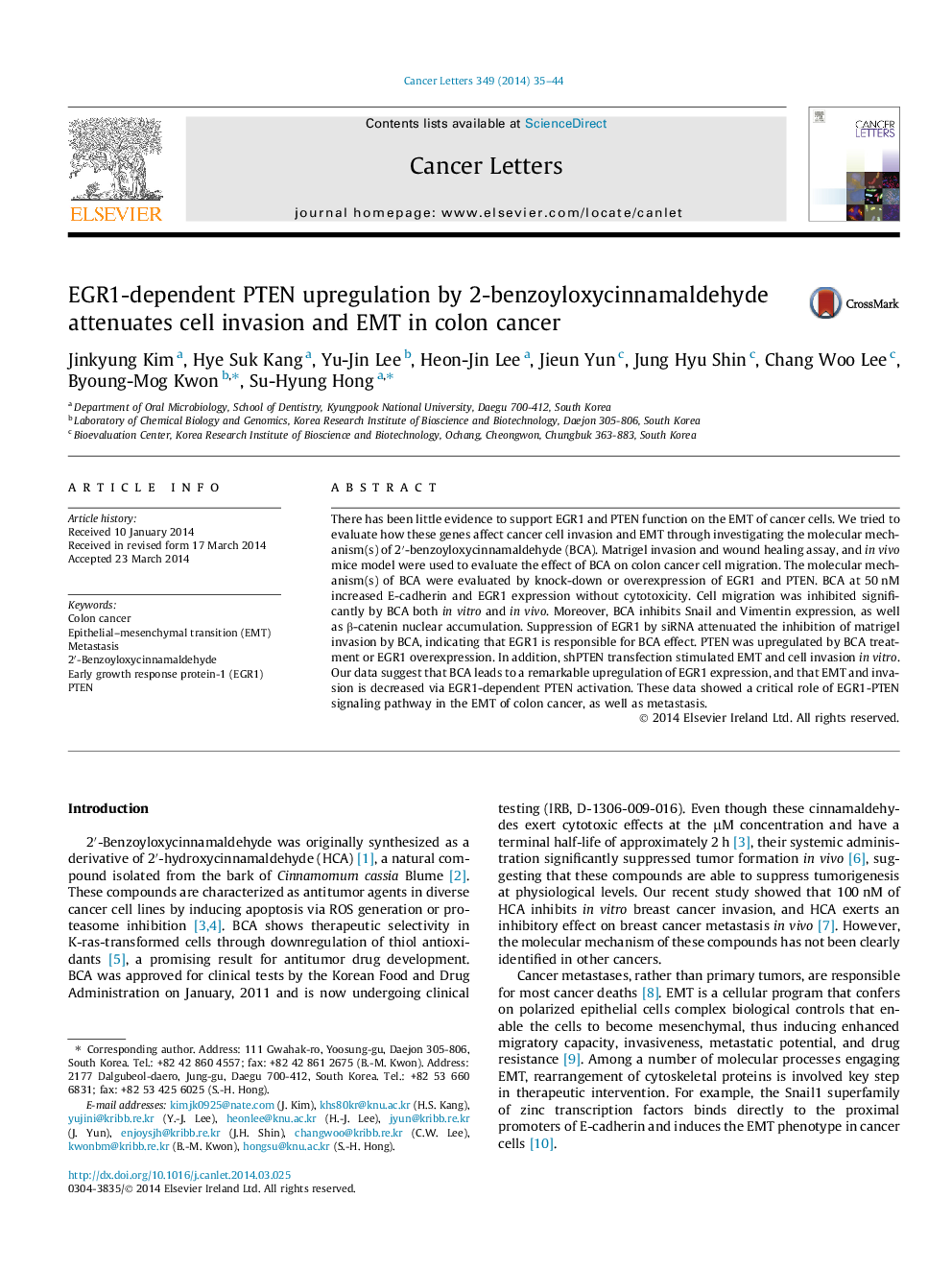| Article ID | Journal | Published Year | Pages | File Type |
|---|---|---|---|---|
| 2112641 | Cancer Letters | 2014 | 10 Pages |
There has been little evidence to support EGR1 and PTEN function on the EMT of cancer cells. We tried to evaluate how these genes affect cancer cell invasion and EMT through investigating the molecular mechanism(s) of 2′-benzoyloxycinnamaldehyde (BCA). Matrigel invasion and wound healing assay, and in vivo mice model were used to evaluate the effect of BCA on colon cancer cell migration. The molecular mechanism(s) of BCA were evaluated by knock-down or overexpression of EGR1 and PTEN. BCA at 50 nM increased E-cadherin and EGR1 expression without cytotoxicity. Cell migration was inhibited significantly by BCA both in vitro and in vivo. Moreover, BCA inhibits Snail and Vimentin expression, as well as β-catenin nuclear accumulation. Suppression of EGR1 by siRNA attenuated the inhibition of matrigel invasion by BCA, indicating that EGR1 is responsible for BCA effect. PTEN was upregulated by BCA treatment or EGR1 overexpression. In addition, shPTEN transfection stimulated EMT and cell invasion in vitro. Our data suggest that BCA leads to a remarkable upregulation of EGR1 expression, and that EMT and invasion is decreased via EGR1-dependent PTEN activation. These data showed a critical role of EGR1-PTEN signaling pathway in the EMT of colon cancer, as well as metastasis.
